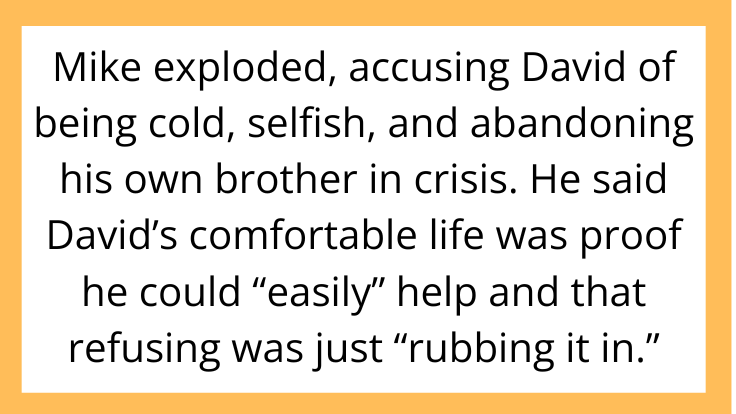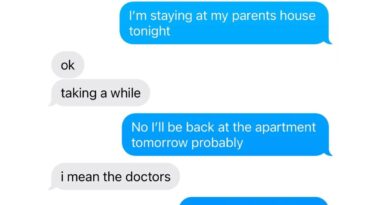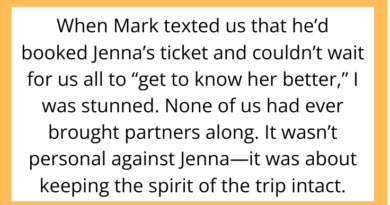AITAH for Refusing to Help My Brother Pay Off His Debt After He Gambled Away His Savings?
When it comes to family, many people believe you should help no matter what. But what happens when a sibling’s reckless decisions come knocking at your door—and your bank account? In this AITAH scenario, one brother’s gambling problem turned into another’s moral dilemma. Let’s break it down to see if refusing financial help makes you heartless…or just sensible.
The Situation: A Gambling Habit Spirals Out of Control

The original poster—let’s call him David—shared on r/AITAH that his younger brother, Mike, has struggled with gambling for years. After multiple warnings, therapy attempts, and family interventions, Mike assured everyone he had stopped.
But a month ago, David got a panicked call: Mike had racked up $30,000 in debt from online poker and sports betting. He had maxed out credit cards, drained his savings, and now couldn’t pay rent.
Their parents, who live on fixed incomes, couldn’t help. Mike turned to David, asking for a loan to “get back on his feet.”
David makes good money as an engineer. He could technically cover the debt—but he didn’t want to.
The Refusal: Drawing a Hard Line
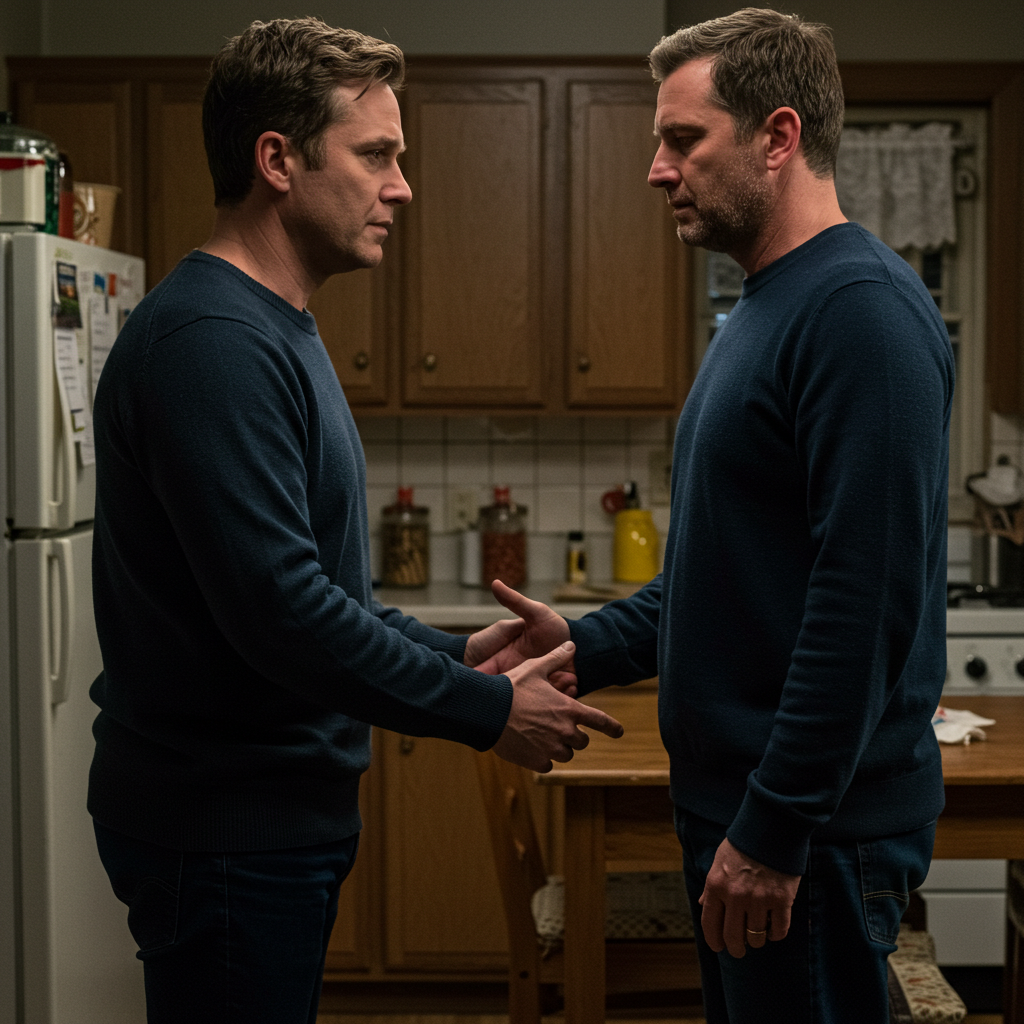
David told Mike he was sorry but wouldn’t be lending him anything. Instead, he offered to pay for a financial counselor and help him set up a debt repayment plan.
Mike exploded, accusing David of being cold, selfish, and abandoning his own brother in crisis. He said David’s comfortable life was proof he could “easily” help and that refusing was just “rubbing it in.”
David’s parents called, pleading with him to reconsider. They argued that family means supporting each other no matter what, and that if Mike declared bankruptcy, it would “ruin his future.”
David stuck to his decision. He told Mike he loved him—but wouldn’t bail him out again. Then he turned to Reddit to ask: Am I the villain here?
Reddit’s Verdict: Overwhelming Support for Boundaries
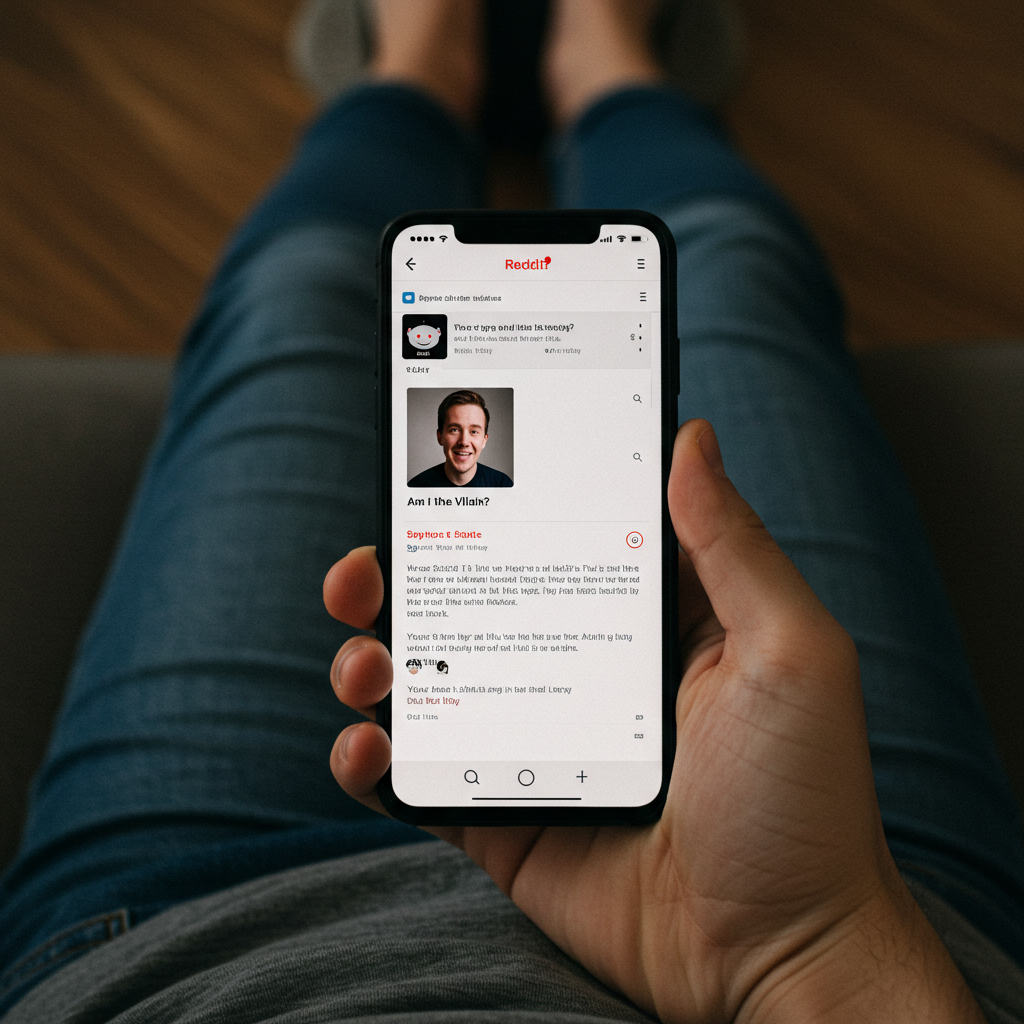
Thousands of comments flooded in. The consensus? David was not the villain.
One of the most upvoted responses summed it up perfectly:
“Helping doesn’t mean enabling. You’re protecting your brother from himself—and protecting your finances.”
Many commenters shared similar stories of loaning money to addicted relatives, only to see the problem get worse. Others applauded David for offering practical support instead of writing a blank check.
Of course, a few felt that family obligation should override the principle. One person argued:
“If you can afford it, why wouldn’t you help? If he were sick, you’d pay. This is also a sickness.”
But even these commenters admitted that any help should come with clear conditions and boundaries.
The Bigger Picture: When Does Helping Become Enabling?

This scenario highlights a difficult truth: sometimes, helping someone you love means saying no.
Mike’s gambling is an addiction. Just like any other compulsion, it can only be addressed if the person is willing to face consequences and do the work. By handing over money, David would have removed the urgency for Mike to change.
Addiction experts often say that bailing someone out financially can prolong the cycle. While David’s refusal feels harsh, it’s a form of tough love that might be more effective in the long run.
A Closer Look at the Arguments

Why David’s Decision Makes Sense
-
Financial Responsibility: $30,000 is a lot of money. Even if David could afford it, giving it away could compromise his own security or plans.
-
Past History: Mike has repeatedly promised to stop gambling. He’s broken those promises every time.
-
Boundaries: David didn’t abandon Mike. He offered counseling and support—just not a blank check.
Why Some See It as Cold
-
Family Obligation: In many families and cultures, you simply help when someone is in crisis, no matter the cause.
-
Potential Consequences: Bankruptcy could impact Mike’s housing, employment prospects, and mental health.
-
Sibling Relationship: Saying no might damage trust and closeness permanently.
What Could David Have Done Differently?
Some commenters suggested possible compromises:
-
Offer a partial loan with conditions: For example, agreeing to cover rent for two months while Mike enrolls in therapy.
-
Create a repayment contract: Lending the money with legal documentation and a payment plan.
-
Escrow account: Holding funds to pay creditors directly rather than giving Mike cash.
But ultimately, many agreed that none of these options guarantee a real solution if Mike doesn’t address the addiction itself.
Takeaway: Saying No Is Sometimes the Kindest Choice
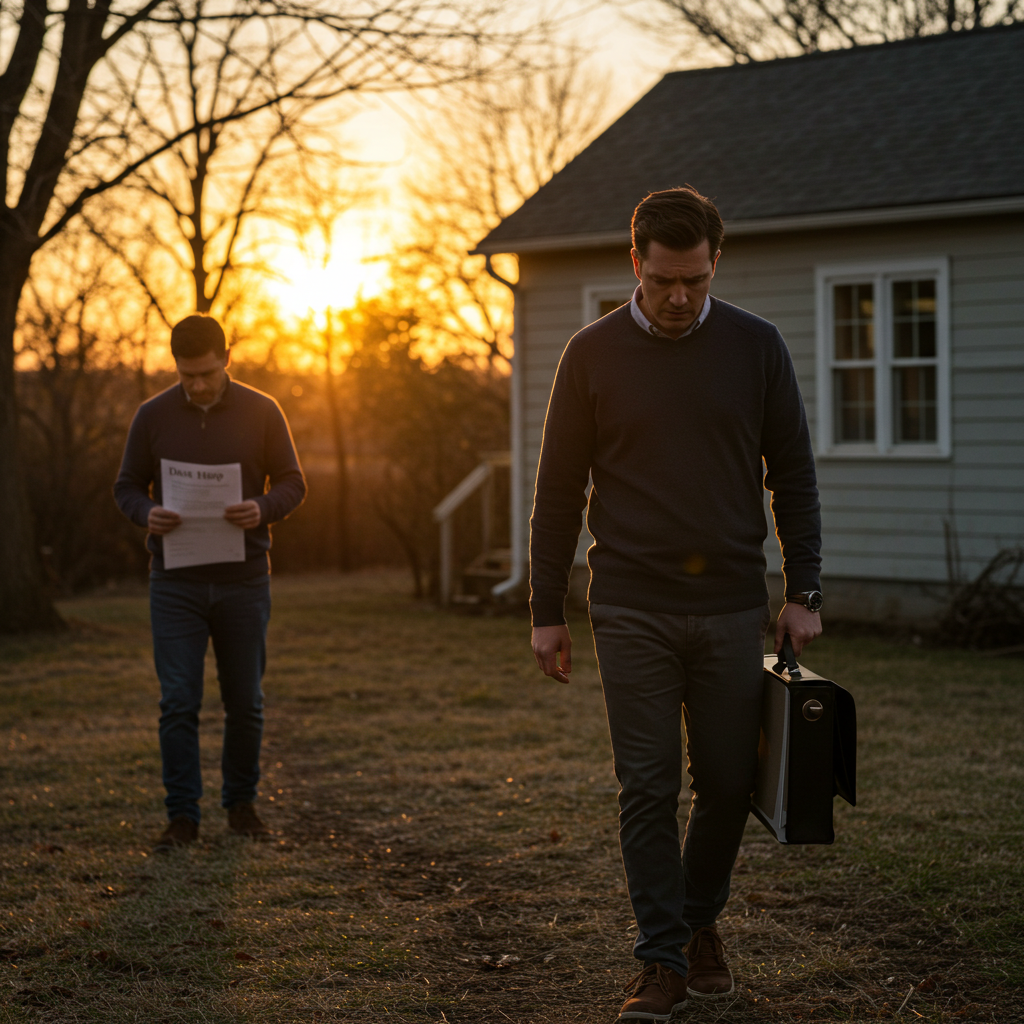
This AITAH post struck a chord because it reflects a universal dilemma: balancing compassion with self-preservation.
Supporting family is admirable—but when “help” means enabling destructive habits, saying no can be the most loving thing you can do.
David didn’t abandon his brother. He simply refused to shield him from the consequences of his choices. And sometimes, that’s exactly what it takes to spark real change.
